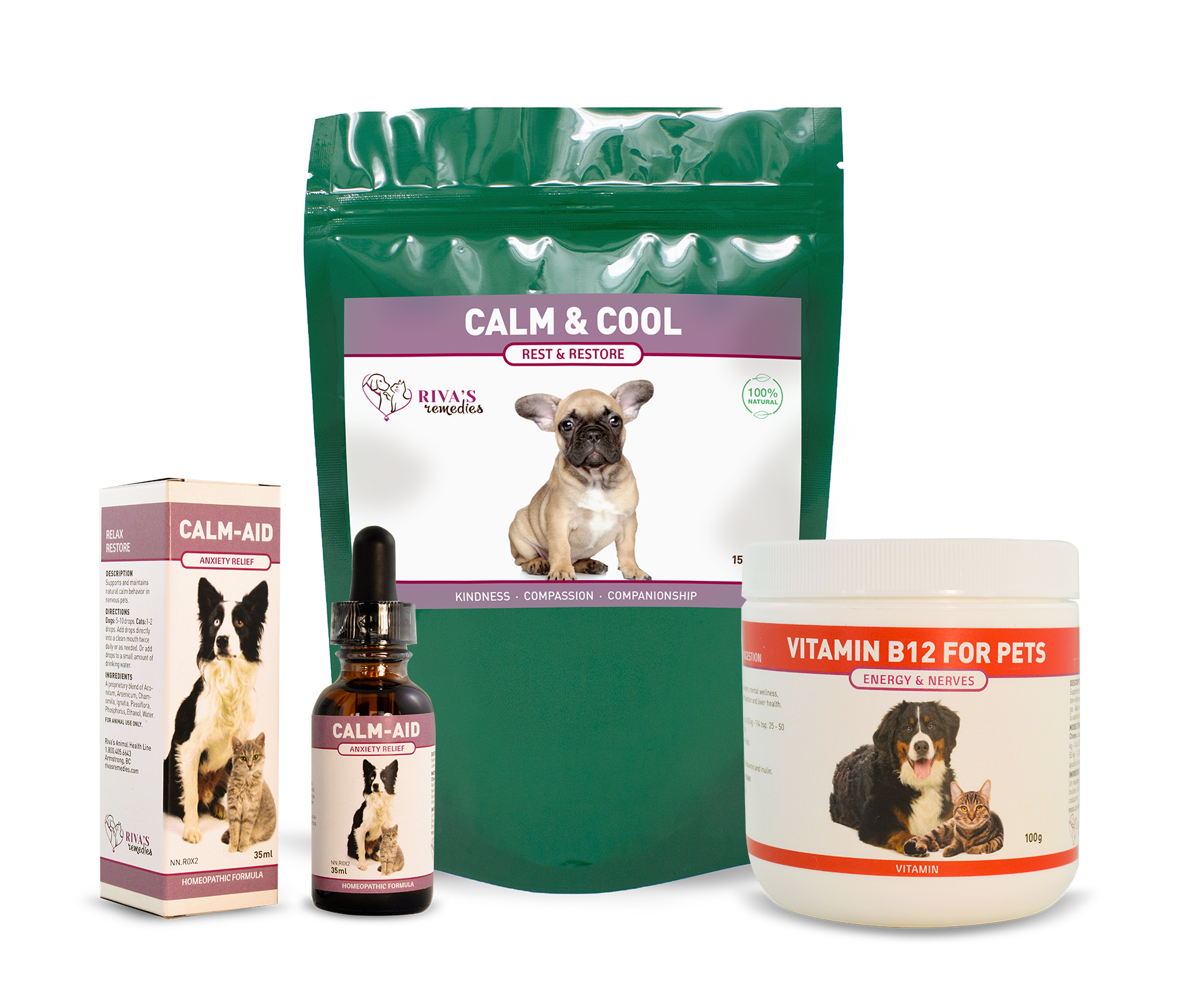~ Anxiety, Fear, and Adrenal Burn-Out ~
Anxiety is one of the most common responses that dogs have to many different situations. It is a behavioural response to other emotions and causes worry, restlessness, irritability, fear, withdrawal, muscle tension, and physical changes. Anxiety can be both acute and chronic. Acute anxiety is a response to certain situations such as fear of bigger dogs or loud noises, whereas chronic anxiety can cause a “free-floating” anxiety which causes animals to be in a state of stress all the time. This eventually results in adrenal burn-out where they are less able to cope with even minor stressors. This may eventually escalate to more extreme symptoms such as panic attacks or phobias.
Which Dogs Commonly Experience Anxiety?
Lifestyle Issues
•Dogs with low confidence or low self-esteem are prone to anxiety because they don’t feel equipped to handle the situation.
•Dogs who have not had any training have not had an opportunity to build up their confidence.
•Dogs without a purpose. Dogs need a purpose in life just like we do.
•Dogs that don’t get enough exercise, are bored, or are house bound. Dogs who don’t have anything to do or they don’t get enough physical activity will have pent up energy and emotions. Some dogs have a lot of energy!
•Dogs that have not been properly socialized. If they are not familiar with their surroundings, other dogs, or other people the most common response will be fear.
•Dogs that have been abused, traumatized, or abandoned in the past. Or who live in households with anxious people.
Dogs With Health Problems
Dogs can also experience anxiety from physiological or biochemical changes due to physical problems or health conditions.
•Cushing’s Disease
•High blood sugar, Insulin Resistance, or obesity
•Seizures
•Medication side-effects
•Vaccinosis (adverse reactions to vaccine – acute or chronic)
•Food allergies and sensitivities.
What Are Dogs Most Afraid Of?
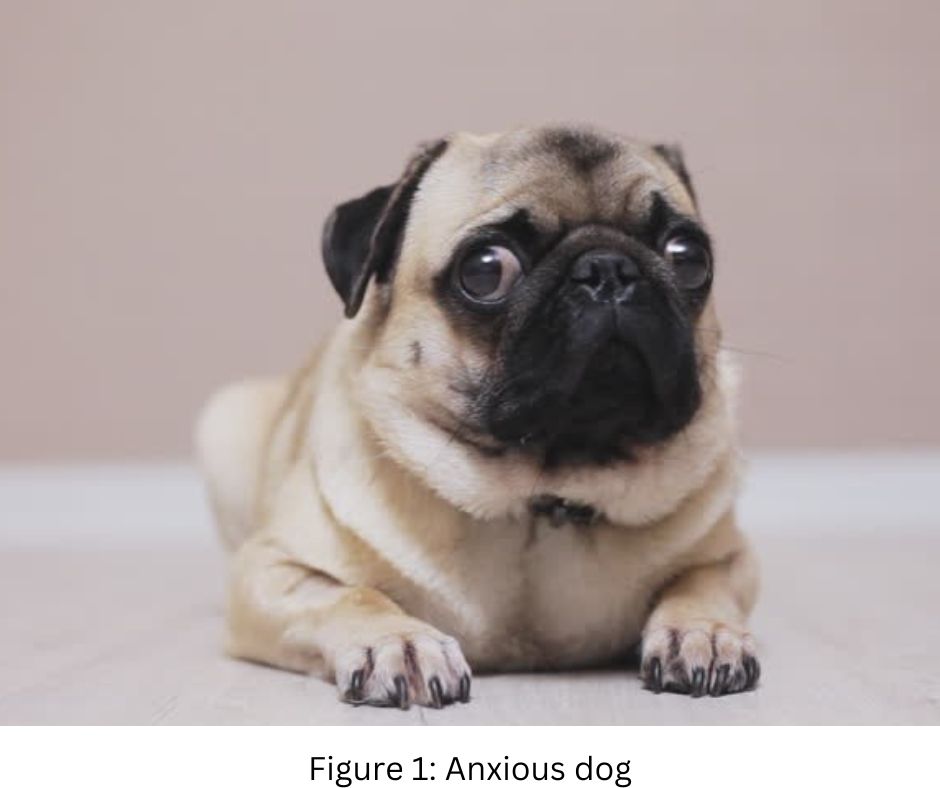
Dogs can be afraid of a lot of things and situations: being alone, separation anxiety, loud noises, fireworks, thunder, wind, doorbells, grooming or vet appointments, or riding in cars. They may also react to children, men, strangers, dogs bigger than them, and fighting or yelling people. Disruptive or chaotic households also create a lot of anxiety and fear for dogs.
Symptoms of Anxiety in Dogs
Scary things can cause dogs to change their behaviour depending on the situation, the breed, their health, or their age. By observing these behavioural changes, we are able to identify the anxiety and the degree of intensity.
•Cowering
•Hiding
•Trembling
•Barking
•Running Away
•Biting
•Growling
•Excitement or hyperactivity
•Tail chasing
•Frequent urination
•Excessive licking
•Jumping into bed with you
How Can We Help Anxious and Fearful Dogs?
1. First change the diet. Take them off commercial feeds and go more natural. There are
a lot of choices available now. If raw isn’t working, feed cooked, if cooked food isn’t
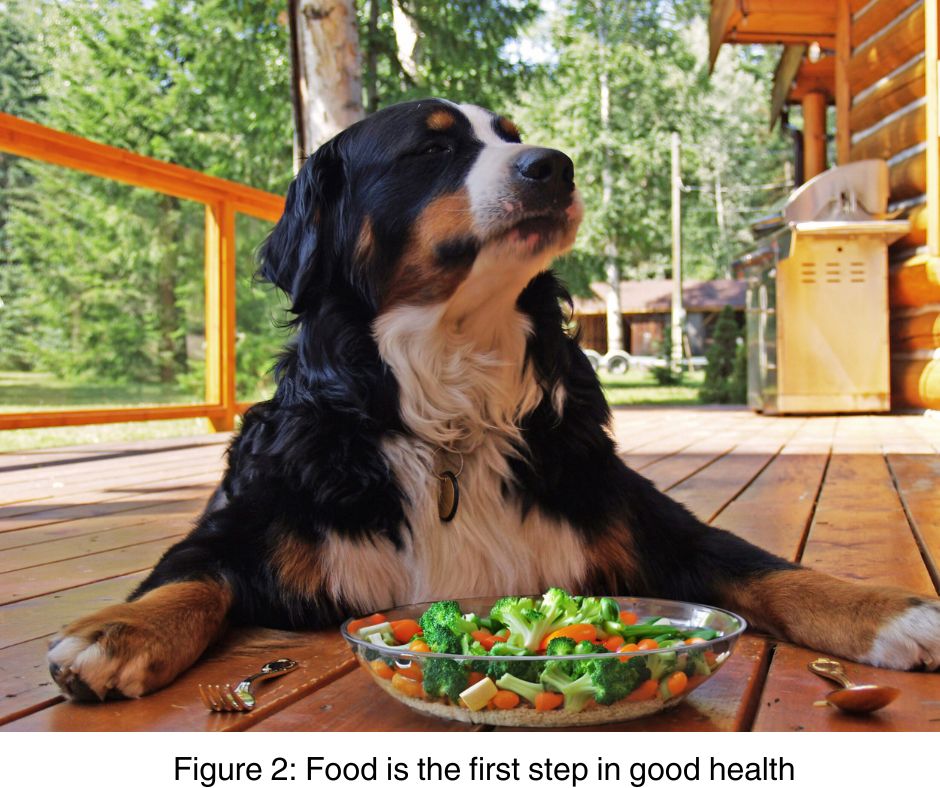
working go raw. Either way, give them lots of home-cooked food, including vegetables. Vegetables, greens, and flax/hemp seeds support the nervous system. See Healing Dogs Their Way for extensive diet and nutrition information including meal plans.
2. Reduce the intake of meat protein! And don’t feed beef or red meat. This is especially true for sedentary dogs and senior dogs who can no longer efficiently digest and metabolize meat. Almost every senior dog with anxiety that I have worked with improved significantly on reduced meat and no kibble. And they have less inflammation.
3. Ensure that your dog is getting enough to eat; hunger, lack of satiety, or poor quality kibble cause blood sugar fluctuations and adrenaline surges causing trembling, irritability and anxiety.
4. Start walking! And/or provide play time with another dog. Increased exercise gives them a chance to burn off excess nervous energy. In addition, exercise extends longevity by improving digestion, immunity, organ function, and mental health.
5. Keep confinement to an absolute minimum, don’t leave them alone for hours, and don’t let them get bored. Get them out of the house.
6. Get them out of their heads and give them a purpose, such as helping with chores, picking up the mail, bringing your slippers, protecting the yard, visiting a neighbour in need, or greeting visitors.
7. Play relaxing music, burn some lavender in the diffuser, and take them for acupuncture, chiropractic, or massage treatment. Practice Reiki.
8. Enroll them in a training program no matter how old they are. Dogs who socialize and have an opportunity to develop mentally and physically, start to build confidence and learn how to think before they react. Emotional fitness which does wonders for their self-esteem.
Recommended Supplements for Nervous Dogs
Magnesium Citrate – One dose daily. Promotes relaxation in nervous dogs with anxiety, irritability, and muscle tension.
Vitamin B12 – One dose daily. Supports dogs with nervous tension, fatigue, and low energy. Maintains mental wellness and cognitive function.
Borage Seed Oil – daily. Essential fatty acids provide nutrition for the nervous system, inflammation, and immunity.
Calm & Cool herbal blend – One dose once or twice daily. Promotes recovery in dogs with a hyperactive nervous system, chronic anxiety, frequent fear, and adrenal stress.
Calm-aid homeopathic formula – One dose daily or as needed for the situation. Fast acting liquid remedy for nervous dogs or dogs who fear car rides, separation, loud noises, grooming, vet visits, or strangers. Use for any anticipation anxiety.
Flower Essences
Give 2-4 drops – twice daily into a clean mouth or in their drinking water.
Bleeding Heart - separation anxiety when people or dog friends leave or die. Helps dogs with grief and loss.
Evening Primrose – Suited for dogs who have a history of abandonment and not being wanted. Feelings of rejection. Excellent for rescues.
Lavender- Promotes calming in dogs or are easily overwhelmed or overstimulated. High-strung dogs with spiritual sensitivity
Pink Yarrow – Helps dogs who pick up emotional and psychic negativity from other animals or people resulting in nervous or emotional overwhelm
Helping Anxious & Nervous Dogs
Anxiety does not have to be a permanent state of being. There are many modalities to
help all breeds and ages of dogs who are suffering with nervous system or behaviour disorders. Diet, nutrition, supplements, herbal medicines, lifestyle changes, training, and energy medicine are all highly beneficial. Some dogs may respond to different therapies better than others so be sure and work with the different therapies.
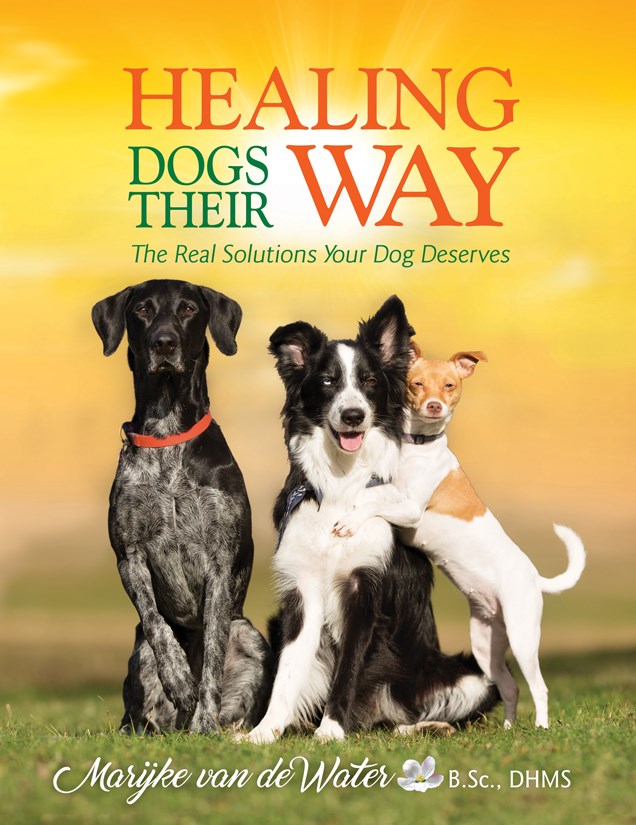 This is the health care book that your dog deserves. It is based on a deeper understanding of our dogs and a sensitive, sensible, and holistic and experienced approach to their health care.
Diet, nutrition, meal planning, herbs, vibrational medicines, and full natural health programs for all health conditions are all here.
Marijke’s exceptional health care methods are not an alternative; her thousands of clients from all walks of life consider them mainstream.
This is the health care book that your dog deserves. It is based on a deeper understanding of our dogs and a sensitive, sensible, and holistic and experienced approach to their health care.
Diet, nutrition, meal planning, herbs, vibrational medicines, and full natural health programs for all health conditions are all here.
Marijke’s exceptional health care methods are not an alternative; her thousands of clients from all walks of life consider them mainstream.
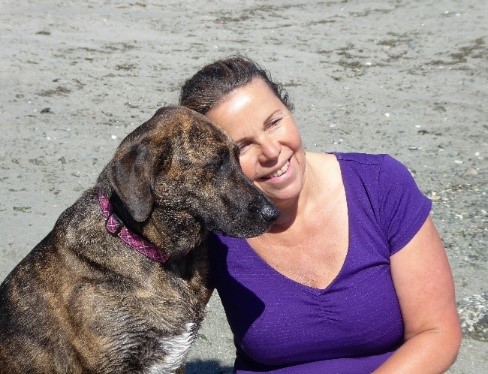 Marijke van de Water, B.Sc., DHMS
Marijke van de Water, B.Sc., DHMS
Animal Health & Nutrition Specialist
Homeopathic Practitioner
Medical Intuitive & Healer
Educator & Author
Marijke is a life-long animal lover, the author of Healing Dogs Their Way, and the founder, formulator, and CEO of Riva’s Remedies. She is a gifted healer who has helped thousands of animals live happier, healthier lives. She is currently working on the 3rd edition of Healing Horses Their Way.


